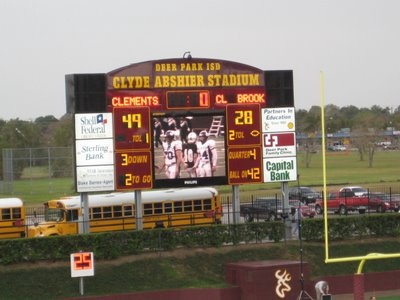
Here’s an analogy: If we were watching a sporting event like the Super Bowl, the score is 49-28 with 3 minutes left in the game. All the good commercials have been aired and the game was over at halftime when the winning team sprinted ahead to a 35-14 lead. There is no reason to watch the game but the announcers will do anything to keep your attention – talking about how the losing team scored a couple of touchdowns in the second half to make the game “competitive.”
Make no mistake about it, the losing candidate’s West Virginia “win” is a garbage touchdown scored in the second half of a lost game and it was scored against the 3rd team defense of the other team. Why should the winners risk getting star players injured in a meaningless exercise?
Moving away from the sports analogy for the moment, what does it say about the candidate when the only supporters who seem to be enthusiastic supporters are acknowledged bigots, poorly educated, with few economic prospects, and insular? Don’t believe me, look at how these people reacted when the football coach left to take a job at another school. What does it say about that candidate when these people constitute their “base?”
Let’s get real, an exit poll indicated that people who supported the “gas tax holiday” voted for Clinton by a margin of 74%-18%. Do we really want people who are incapable of performing basic math (10 gallons x 14 weeks x $0.184 = $25.76 which will be financed at 8% over 20 years) to be the primary voice in selecting our collective leadership? Thank you very much, but I don’t think so.
When you hear the palaver about how there’s “new life” in the Clinton campaign, remember, these are simply announcers trying desperately to get you to pay attention to a game that’s already decided. It’s noise.

Welcome Stumblers! I hope you enjoy this entry – if you like it please give it a thumbs up, hang around a little bit, and check out my other content. We have a very easy RSS subscription to keep you in the loop. Thanks for dropping by and I hope you enjoy your visit.
Paul Graham wrote an excellent and thought provoking piece on lying to children. I guess it’s obvious and sometimes I’m guilty of it myself (though my spouse often observes that I provide the accurate answer to 5-year-old questions too often…) The truth is, parents lie to children all the time for various reasons some of which are justified and some of which are not.
The interesting thing to me is the reaction to those lies as children realize that their world isn’t as it’s being represented by the authority figures in their life and the often crushing emotional consequences of these realizations. The more precocious the child, the earlier this set of contradictions will likely be exposed and the less prepared emotionally the child will likely be to handle the revelation.
Does that mean you shouldn’t lie to your children? I don’t think any reasonable, caring parent can escape some degree of deflecting “truth” situationally because often the subject is not age appropriate and the child is not yet capable of understanding the reality of the situation. However, I’ve come to understand that children are significantly more aware and capable of understanding complex and nuanced situations than adults realize.
I’ve adopted a rule of disclosure that is as starkly factual as possible when confronted with questions. I find that my daughter often likes to use car rides to ask questions that have been on her mind. Recently, she had a play date with a child from a vegetarian family at our house and that child asked “Do you eat animals?” Let’s just say my daughter is an omnivore so she answers “Yes” her friend says “Don’t you think that’s sad?” The questions that spawned from this exchange was “Why do we eat some animals and not others? And, are the animals we eat happy?”
We’ve been pretty open with her about where food comes from, we jokingly call eggs “chicken embryos” and bacon “sliced pig” so there’s no mystery about food source. I turned the question around and asked “Why do you think we eat some animals and not others?” and she said “Because some taste better than others.” I thought that was a pretty good answer. Then I asked her, “Do you think these animals are happy?” and she said “I’m not sure if animals are happy or sad, but they probably don’t want to be eaten.”
An interesting exchange to be sure, I learned more about her and came to understand that she has a deeper understanding of the situation than I would have guessed on my own. We’ve since watched a couple of videos on food processing (Modern Marvels: The Butcher and Cold Cuts) and that helped answer some of the more specific questions about the subject.
The point to this story isn’t about the specific conversation, it’s about the discovery than happens as you explore potentially uncomfortable subjects with children in an open and honest way. We didn’t get into the living conditions of animals, diseases, and many other related topics, but we did get to a place where she understood the core and, hopefully, if she ever reflects on the conversation and follow-up she’ll realize she got the best answers possible.
In any case, I encourage you to read Graham’s piece and carefully and consciously consider when, if, and how you should lie to your children. Sometimes, even though it’s the easiest course, it may not yield the desired long-term results.
What’s your take? Where do you stand on lying to your children. Comments welcome (they are moderated for spam, but not for content.)
If you liked this content, why not give it a thumbs up? Thanks for visiting.
Representative Steve Kagen

Attribution: Scientific American
I’ve been very tough on politicians in this blog and it’s not often that I single one out for praise. Dr. Steve Kagen a Congressional Representative and physician from Wisconsin has taken a very courageous and meaningful stand:
“I’ll respectfully decline [Congressional Health Coverage] until you can make that same offer for all of my constituents.”
This statement was made the the HR rep asking him what his choices would be in benefits. Kagen, at age 58 and in good health, now joins the estimated 47 million Americans with no health care coverage. Scientific American has an excellent detailed and in-depth report about Kagen and this approach to making the health care for all Americans issue front and center in a very personal way. This is leadership by example, something that has been almost entirely absent from politics over the past decade, and should be recognized and emulated.
Cloud Services – Compute/Storage Services

In the latest consolidation in the IT industry at the top tier, HP announced a definitive agreement to purchase IT services company EDS for $13.9B. There are many views on why HP would make this move, but to me the obvious play is in the “cloud” computing model that is emerging. EDS’ principal business is in the outsourced operation of data centers and it’s only a small step from outsourcing to cloud sourcing.
What’s the cloud you ask? It’s pretty simple, it’s when a business makes the choice not to own and operate its own computing infrastructure and instead procure compute cycles and storage from networked based services. The best present examples are Amazon’s EC2 and S3 compute and storage services at an infrastructure level and Salesforce.com at the application level.
While there is an obvious revenue combination and cost synergy, the basis for this acquisition really is to allow HP to establish a leading position as businesses, particularly small businesses, they migrate toward consuming network-based computing services.
Garden Variety Small Farm

In fact, small farms are the most productive on earth. A four-acre farm in the United States nets, on average, $1,400 per acre; a 1,364-acre farm nets $39 an acre. Big farms have long compensated for the disequilibrium with sheer quantity. But their economies of scale come from mass distribution, and with diesel fuel costing more than $4 per gallon in many locations, it’s no longer efficient to transport food 1,500 miles from where it’s grown.
Read more…
The only thing that bothers me about the small farm/large farm comparison is the ability of the farmer to make a living. On the 1,300 acre example, the farmer is bringing in around $53,000 per year. On the 4 acre example, it’s about $5,600 per year. If farming is a part-time gig on the 4 acre plot, that’s a nice side income stream. But, it’s clear that the small farmer needs to be working at a 10x scale in order to be able to hit viability from an economic stand point. No doubt as energy prices increase, the local farmer will benefit. But how much?
Shifting subjects, the dolts in Washington still don’t get it – energy independence === national security. Do you really think the US is immune from food riots? Just wait, as more people drop below the poverty line and their ability to procure food is further crippled, people are going to expect solutions. Certainly this excellent article points out the benefits of smaller, local, fresh ingredients and that has to be part of the solution. But defining a safe, sane, and sustainable energy policy is another part of the solution.
Mr. McCain, Mr. Obama, what do you propose? We’re listening….
HT: Bob








